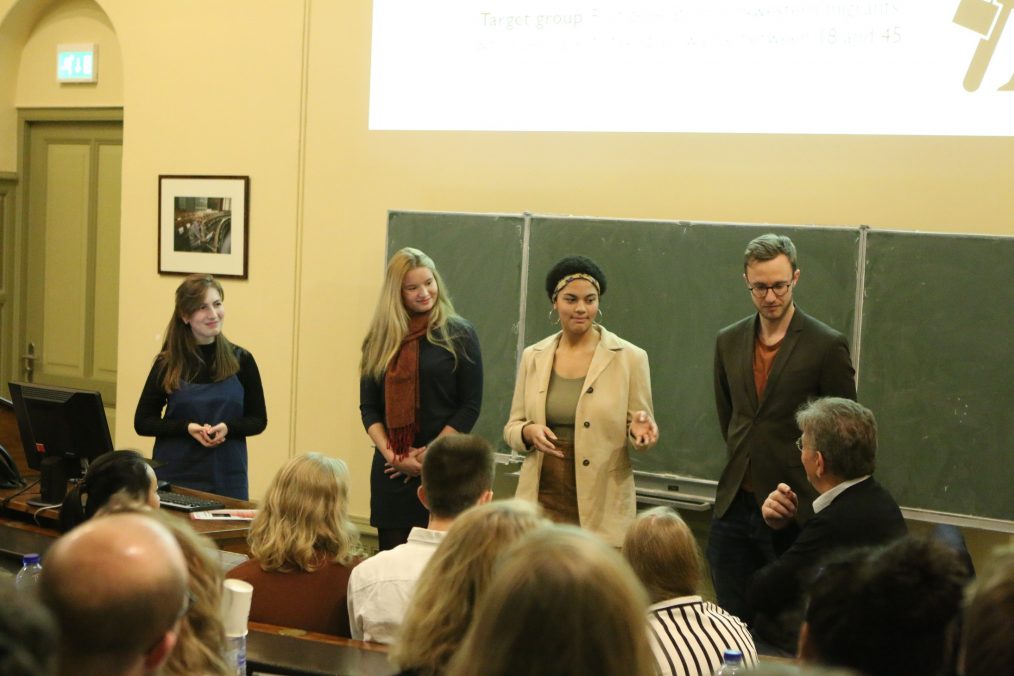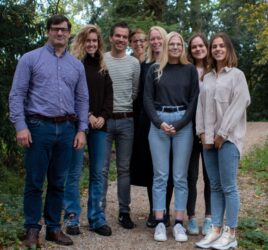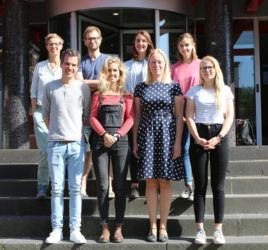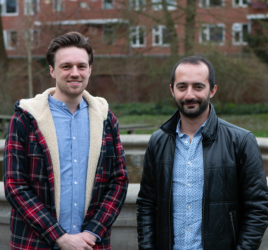
Societal challenge lab: Evidence-based proposals to improve the integration of refugees in the Dutch labor market
Monday evening, January 15th, 5pm: usually students attend lectures in this room. However, today 12 students and their two lecturers have invited seven policy makers and representatives of different NGOs and academia to listen to and discuss their proposals to improve current practices of labour market integration of refugees. This was the closing event of a newly designed learning activity, the societal challenge lab.
This semester Liesbet Heyse (sociology) and I offered a brand new extracurricular course that offers students a unique chance to learn how to apply scientific knowledge to the societal challenge of migration. Students were invited to think along in developing new policies or interventions to improve the integration of first generation migrants in the labor market in the Netherlands. Guest speakers from migrant groups, government, organizations, businesses (such as the Ministry of Social Affairs, municipality of Groningen, UAF, Groningen Verwelkomt), and various academic disciplines shared their views about the challenges of this specific integration and possible ways to address this challenge.
The keynote speaker at the first meeting was Mark Roscam Abbing, director of Society and Integration of the Dutch Ministry of Social Affairs. He explained the development and current situation of migrants in the Netherlands. The majority of refugees who came to the Netherlands, for example from Yugoslavia and Somalia, in the 90s have still not found a job. “The Dutch government failed to integrate these people. We need to learn from our mistakes and improve current practice today,” Roscam Abbing said in his presentation.
In Abbing’s directorate a new work program on the topic of labour market integration of migrants has recently started. In their daily work, he and his colleagues face many challenges that cannot be “solved” with laws. Thus, they are looking for effective and evidence-based approaches to improve the integration of the new group of refugees, many of whom come from Syria and Eritrea. To address these challenges, 12 students from different disciplines (psychology, sociology, and pedagogics), different cultural backgrounds, studying in a bachelor, master or research master program at the Faculty of Behavioral and Social Sciences at the RUG worked under time pressure, consulted experts, interviewed refugees, and conducted thorough literature research. They worked in three small groups to analyze one specific challenge in the broad field of labour market integration, designing an intervention addressing one particular challenge.
“What I enjoyed most from this course was truly being challenged by the different perspectives of my group members. This integrative project was at times, tough to work through, but that made it all the more rewarding when those differences were settled.” Edwina (2nd year research master student in organizational psychology, RUG)
Three student groups presented each one proposal to an expert panel of practitioners and policy makers, focusing on different challenges of migrants’ integration in the Dutch labor market: 1) how entrepreneurship trainings could be an alternative for the labor market integration of first generation migrants; 2) how the recruitment of first generation migrants could be improved; and 3) how the retention of first generation migrants in the labor market could be facilitated. Prof. Jacques Wallage, former mayor of Groningen and Member of Parliament (i.e., State Secretary for Social Affairs), chaired the panel. Wallage closed the meeting by thanking the students for their thorough and evidence−based analyses and stressed that society needs theory and robust methods to address and improve current societal challenges.
“I really liked the course because we were asked to present our proposal in front of a critical and distinguished expert panel. We had to break out of the ivory tower, learned about the practical issues policy makers and other stakeholders are facing, and learned to incorporate scientific evidence and practical challenges during the process of developing an intervention.” Christopher (2nd year bachelor student psychology, RUG)
The meetings of the societal challenge lab showed that connecting academia and society can be rewarding for both parties. The engagement of students, scientists, and experts from society contributed to this exciting learning experience for all involved parties – bridging academia and society to contribute to sustainable development.
Note. Picture by Sander van Lien



